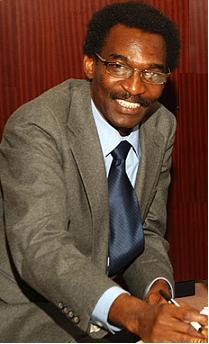| 09-15-2013, 08:17 PM |
Salah Shuaib
|
|
 Is the regimeвҖҷs new economic procedure going to work? Salah Shuaib Is the regimeвҖҷs new economic procedure going to work? Salah Shuaib
|

Is the regimeвҖҷs new economic procedure going to work?
Salah Shuaib
Lastly, the National Congress Party (NCP) did it with no fear of any one, even God. But the question whether or not the people react positively to the decision of the removal of the fuel subsidy remains with no answer so far. We donвҖҷt know, from another aspect, to which extent the effect of the opposition is going to promptly reemerge if the prices highly soar and life conditions get worse in the country. In fact, we do not even know a lot of things in BashirвҖҷs Sudan. But, actually, what we collectively knew now is that the government has no choice but to ride in the back of the people to rescue itself. Such a governmental behavior resembles what we have been witnessing throughout the regimeвҖҷs policies during the last two decades. And, too, it is the reason why the country unity is being devastated.
It goes without saying that BashirвҖҷs people knew that the economy is a tool for domination and repression simultaneously. They have employed this fact since the time they became rich investors and oppressors via empowerment. Subsequently, no wander if they used the new economic procedure to stabilize themselves more and more and to let people pay for the punishment they get from the government itself.
The evidence here is that the budget spending of the countryвҖҷs security apparatuses, which donвҖҷt let people demonstrate against this meant procedure, is taken from the pockets of the folk. This means that the government cannot reduce that spending in order to save the countryвҖҷs currency and let the prices and wages as they were. And if the government does so there would be no need for abolishing the fuel subsidy. But, as they convinced, the shorter way to save the regimes is to let the entire Sudanese share in paying their oppressors in the security apparatuses.
Economy is so connected to politics. It is mainly related to the governmentвҖҷs relationship with people internally and externally and how its projects look like in terms of planning, transparency, production, just distribution of wealth, accountability, and much other stimulus factors.
If you are going to judge whether or not BashirвҖҷs regime was able to link economy with these necessary steps to progress Sudan, then you foremost have to examine its transparent natures in the first place. By doing so you will find that we do not have a real government that matters to all Sudanese, until they actively participate in the fields of production.
Since it has employed itself and the whole country ideologically, the government lost every potential to lift the economy up. It has inherited the countryвҖҳs economic institutions and later on transferred them to the NCPвҖҷs possessions. Moreover, the regime still works with no factual political plans in which it can help Sudanese investors to do their part. Instead, the new investors from the ruling party have exploited their positions in the Sudanese Islamic Movement (SIM) and used any means to enrich themselves rather than doing something better for the countryвҖҷs economy. Thus, the NCP has acquired rich assets at the expense of smashing the national political movements.
вҖңThis week the head of Sudan workers union Ibrahim Ghandour said that the minimum wage increase will range between 11% to 55%, according to the wage structureвҖқ Sudantribune reported. But, needless to say, Ghandour knows exactly that the proposed increase in wage is not going to work for the consumers. At the time the new economic procedures are officially announced, the party investors in the market will definitely seize all the opportunities to increase the prices, in line with the new increase in their trade spending. Ghandour, the professor who cannot feel the suffering of the workers he allegedly represents them, is not simply trying to ignore his accumulated awareness that the market is driven by production spending. But he is trying to lie to us that the government is doing a gratitude work. This despite that he supposes to challenge the governmentвҖҷs decision of the removal of the fuel subsidy as a representative of the workers. How about those who do not have governmental positions?
In all, there is nothing better to do for the state workers, those working in the private sector and those with no jobs than to entirely ignore the regimeвҖҷs new economic procedure and to achieve their political self-determination. Instead of depending on a government that doesn't care much about people benefits, Sudanese have to sympathize each other to topple the NCPвҖҷs government. If prices increase, or not, the economic deterioration will be what characterizes BashirвҖҷs Sudan. Hence, changing the ugly regime becomes a necessary step now more than ever before.
|
|
 
|

|

|

|
|
|